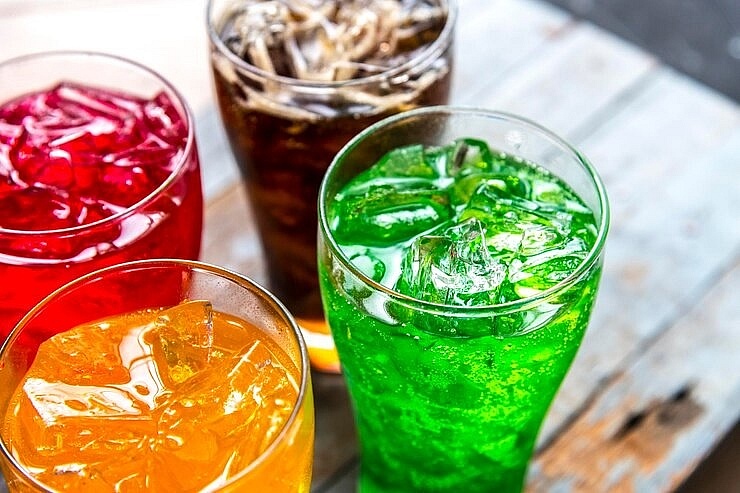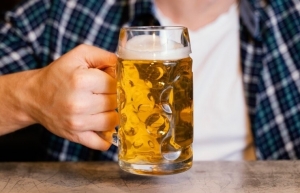Beverage tax is not be-all and end-all for obesity problems
Some countries that have imposed taxes on sugary beverages for a few years reported the rate of overweight and obesity increasing.
 |
| Beverage tax is not be-all and end-all for obesity problems, Source: freepik.com |
Specially, India has applied a special consumption tax (SCT) on sugary drinks since 2017. The rate of overweight and obesity continues to increase to 24 per cent in women in 2019-2021 (from 20.6 per cent in 2015-2016); to 22.9 per cent in men (from 18.9 per cent); and 3.4 per cent in children (from 2.1 per cent).
Chile has imposed an SCT on sugary drinks since 2014. In 2015, although the consumption of taxable soft drinks decreased by 22 per cent, the total consumption of sugary drinks did not decline.
The rate of overweight and obesity continued to rise since then to 30.3 per cent in 2017 for men and increased to 38.4 per cent for women.
The Philippines has been imposing SCT on sugary drinks since 2018, with the rate of overweight and obesity increasing to 37.2 per cent in 2019 and 38.6 per cent in 2021-2022.
Thailand introduced SCT on sugary drinks in 2017. Two years after imposing tax, average daily consumption of sugary drinks decreased from 474 million litres in 2018 to 453.8 million litres in 2019, a fall of 2.5 per cent. However, the rate of overweight and obesity in Thailand increased from 28.7 per cent in 2014 to 33.2 per cent in 2019.
Many countries have abolished SCT policy after a period of application due to the ineffectiveness and the negative impact on socioeconomic development. Denmark has cancelled the application of SCT on sugary beverages since early 2024 because Danes went to other European markets to buy soft drinks at lower prices, leading to the loss of 5,000 jobs. After the tax was abolished, the country’s obesity rate remained at the same as before.
Elswhere, Cook County in Illinois of the US repealed SCT on sugary soft drinks less than a year after approving it, while California even passed a law that prevents any city from imposing a tax on beverages or food for 12 years.
Norway has removed SCT on non-alcoholic drinks since 2021. Norway had a tax on sugary drinks but the tax’s impact was not as effective as expected in controlling overweight and obesity. The obesity rate of adults doubled to 15.5 per cent for men and 12.7 per cent for women in 2019.
Besides that, instead of adjusting consumers’ habits, the tax on food and drinks in Norway pushed people to go to neighbouring Sweden to buy similar products.
Moreover, many countries do not apply the SCT on sugary beverages but have succeeded in controlling overweight and obesity by implementing propaganda measures, educating about lifestyle, healthy diet and increasing physical activity.
In Japan, the Shokuiku and Metabo laws regulate healthy menus in schools and nutrition education for students. These laws also require workplaces to provide breaks for employees to exercise and encourage them to do physical activity after work.
Singapore promotes programmes for physical activity and nutrition, for example, the Healthy School Meals campaign, and the National Step Challenge.
The average soft drink consumption per capita in Germany (336.3 litres) is much higher than the European average (243.9 litres), but not impose an SCT on soft drinks. Germany has adopted dietary and physical activity guidelines and has restricted advertising and nutrition labelling. These measures are estimated to prevent approximately 218,000 cases of non-communicable diseases by 2050.
Therefore, the inclusion of sugary drinks in the SCT objectives should be reconsidered carefully. A sustainable approach to addressing overweight, obesity, and other non-communicable diseases should be strengthening education, implementing policies, and encouraging people to maintain a balanced and reasonable diet, as well as increasing physical activity.
 | Vietnam should learn from international experience before raising beverage tax Vietnam has been urged to learn from other countries to prevent a shock to businesses and ensure a balance of interests before it raises taxes on alcohol. |
 | Businesses call for further scrutiny on beverage tax Industry insiders claim there is no evidence that imposing an excise tax on sugary drinks will reduce consumption, and such a move requires more comprehensive assessment. |
*) Nguyen Ngoc Yen, lecturer faculty of Economic Law Hanoi Law University
What the stars mean:
★ Poor ★ ★ Promising ★★★ Good ★★★★ Very good ★★★★★ Exceptional
Related Contents
Latest News
More News
- Citi economists project robust Vietnam economic growth in 2026 (February 14, 2026 | 18:00)
- Sustaining high growth must be balanced in stable manner (February 14, 2026 | 09:00)
- From 5G to 6G: how AI is shaping Vietnam’s path to digital leadership (February 13, 2026 | 10:59)
- Cooperation must align with Vietnam’s long-term ambitions (February 13, 2026 | 09:00)
- Need-to-know aspects ahead of AI law (February 13, 2026 | 08:00)
- Legalities to early operations for Vietnam’s IFC (February 11, 2026 | 12:17)
- Foreign-language trademarks gain traction in Vietnam (February 06, 2026 | 09:26)
- Offshore structuring and the Singapore holding route (February 02, 2026 | 10:39)
- Vietnam enters new development era: Russian scholar (January 25, 2026 | 10:08)
- 14th National Party Congress marks new era, expands Vietnam’s global role: Australian scholar (January 25, 2026 | 09:54)

 Tag:
Tag:



















 Mobile Version
Mobile Version